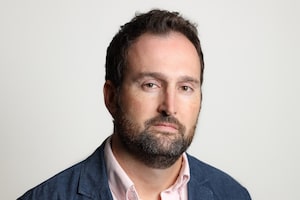Toronto Artscape Inc., a non-profit that provided affordable housing and studio space for artists for more than 30 years, has formally entered bankruptcy proceedings – a process set in motion last summer when it failed to repay millions owed to Toronto-Dominion Bank as it sank further into debt.
Artscape announced in August that the bank, its primary lender, was taking steps to place the organization into receivership after a “challenging financial restructuring period.” The non-profit owed TD Bank more than $21-million, and its long-term debt had ballooned to $31.7-million by the end of 2022. It ran a deficit from operations of $3.7-million that year, according to court filings.
The bankruptcy process begins as Artscape unveils more details about its restructuring plan, which will create a new affordable-housing non-profit group, called ANPHI Affordable Homes Inc., and a separate non-profit entity called ArtHubs Toronto Inc., which will take over operation of all community cultural hubs previously operated by Toronto Artscape Inc.
Artscape tried to launch a ‘game changer’ for artists. Then it found itself on the brink of collapse
It also announced that OCAD University, a Toronto-based art, design and media school, will serve as a “strategic partner” for ArtHubs, providing a $350,000 loan over a one-year period in exchange for a seat on the new governing board. Patrick Tobin, general manager of economic development and culture at the City of Toronto, and Dina Graser, past chair of the Toronto Arts Council, will also sit on the new board.
“Having hubs devoted to arts and culture in different neighbourhoods across the city is incredibly important for a vibrant Toronto,” Ana Serrano, OCAD’s president and vice-chancellor said in a statement. “We look forward to working with ArtHubs over the next year to create a sustainable model for these centres.”
On Thursday, the organization’s lawyer attended a bankruptcy hearing in Ontario Superior Court, the first step to hand over control of affordable housing units at four Toronto properties to a court-appointed receiver. Artscape’s directors declined to comment until the receivership process is complete. TD Bank referred all questions to the receiver, an insolvency firm called msi Spergel Inc., which did not immediately respond.
While the units at the four former Artscape properties – including 122 studios and condos at Triangle Lofts, Youngplace and 210 Simcoe, as well as co-working spaces at Launchpad – are not part of the restructured non-profit, the group said it hopes they will remain available to artists at below-average rents.
“Efforts continue to ensure these units remain affordable for the communities they serve,” Artscape said in a statement released by spokesperson Subagini Sivapatham.
The Globe and Mail reported in October that much of the debt that caused Artscape to collapse was tied to its flagship Launchpad project on the Toronto waterfront. Artscape’s long-time chief executive officer, Tim Jones, initially blamed the COVID-19 pandemic and its effect on the real-estate market and public gatherings as the main reasons for the Toronto non-profit’s financial failure.
Artscape previously revealed that ArtHubs Toronto Inc. would use funding from the city and private donors to take over operations at Artscape’s community hubs, including Artscape Gibraltar Point on the Toronto Islands; its Regent Park community arts centre, Daniels Spectrum; and its Wychwood Barns facility, which hosts events and houses live-work studios and non-profit groups.
It also says new operating models are being developed for Sandbox, a multidisciplinary performance and event space in the city’s Entertainment District, and the community cultural hub at Weston Common. The city says it has exercised its option to buy Sandbox back “for a nominal price,” as part of its original agreement that transferred ownership of the property to Artscape.
The statement from Artscape also says Dream, the company that owns the Weston Common property, will temporarily assume operating responsibility and costs for that community cultural hub, as well as management of the current tenancy agreements.
“During a transitional period, the City of Toronto and Dream will work with existing tenants and the community to develop a long-term operating model for this community hub,” Artscape said in the statement. “In the coming months, the city will work with community partners to develop a long-term operating plan for this venue, in keeping with the original vision for the site as a community performance space.”
With a report from Josh O’Kane
 Greg Mercer
Greg Mercer